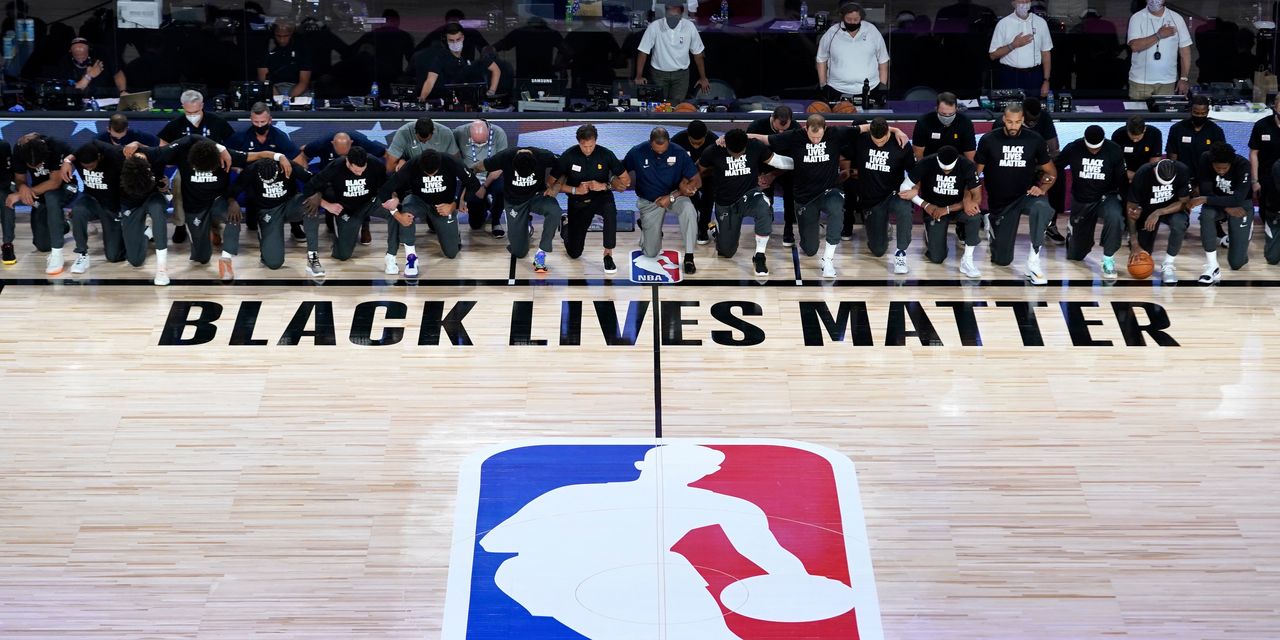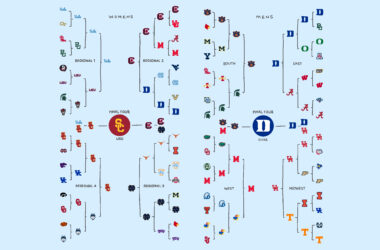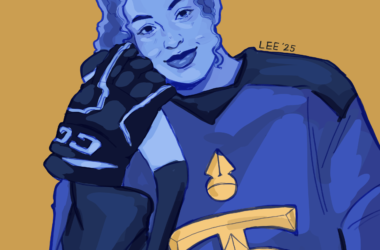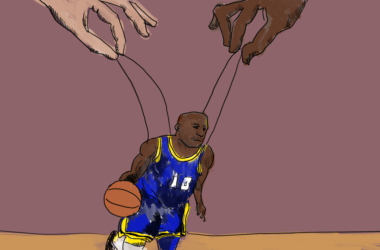There have been many defining moments of the 2020 NBA season, from the successful restart of the season inside a bubble to LeBron James’s fourth Finals MVP title. In the face of a global pandemic, the NBA found a safe way to allow players and franchises to continue making basketball history. However, finding solutions in the face of adversity was not limited to finding a way to play basketball in a pandemic—the league’s facilitation of players’ social justice activism was a large part of what made this season so significant.
Since the restart of the season in Orlando, the league gave players the opportunity to share phrases—such as “Equality” and “Black Lives Matter”—on their jerseys. Activism for social change continued throughout the Bubble as many players and coaches kneeled for the national anthem at the beginning of games, an action that was popularized in professional sports by NFL player Colin Kaepernick.
NBA franchises have a history of diversity across organizations, from players to team ownership, and the basketball community has always been vocal in supporting social justice movements such as the Black Lives Matter movement. A significant moment in this season came in late August, when the top-seeded team in the Eastern Conference, the Milwaukee Bucks, decided to boycott game five of the first-round series against the Orlando Magic. This boycott came as a response to the shooting of Jacob Blake by police in Kenosha, Wisconsin. Other teams subsequently boycotted their own playoff games in solidarity with the Bucks and the Black community, and the league temporarily paused the season. The question of whether playing in the Bubble was contributing to the fight for racial justice, or distracting players from addressing these issues, was prevalent.
This season was certainly not the first time that NBA players chose to take a political stance. For example, after the Golden State Warriors became champions in 2017, they broke the tradition of winning teams visiting the White House, refusing to visit newly-elected President Donald Trump. Trump has repeatedly denied that systemic racism exists and condemned professional athletes who take political stances.
Most players have since agreed that making full use of their platforms is critical when it comes to standing up for their values. No NBA championship team has visited the current president.
As the world outside the Bubble reckoned anti-Black racism, players, led by the Milwaukee Bucks boycott, seriously considered cancelling the season. However, after several days of discussions, including consulting former President Barack Obama, players, coaches, owners, and the league reached an agreement to continue the season while continuing to promote racial equality.
In the Eastern Conference, the fifth-seeded Miami Heat defeated both the Bucks and the third-seeded Boston Celtics to become the third-lowest seeded conference champion since 1984. The Heat faced the Los Angeles Lakers in the Finals, and it was the first time neither finals contender made the playoffs in the year before. Heat rookie Tyler Herro became the youngest player to start in the NBA Finals, while LeBron James made it to his tenth NBA Finals, tying for third in finals appearances with Kareem Abdul-Jabbar.
As basketball history was being made in Orlando, conversations from the Bubble were making an impact on the world outside. There were several new initiatives, mostly aiming to increase voter turnout both within and beyond the NBA. Only 22 per cent of eligible NBA players voted in 2016, whereas more than 90 per cent of eligible players are registered to vote as of Oct. 4 2020, including all players on 15 of the league’s 30 teams. In addition, 20 teams across the United States have turned their arenas into polling locations, making it easier for basketball fans and non-basketball fans alike to cast their ballots.
Players share a love of basketball and a commitment to their values. In a tumultuous time, their actions can serve as examples that show that people don’t necessarily have to choose between their careers or taking action to advocate for their values—they can do both.









